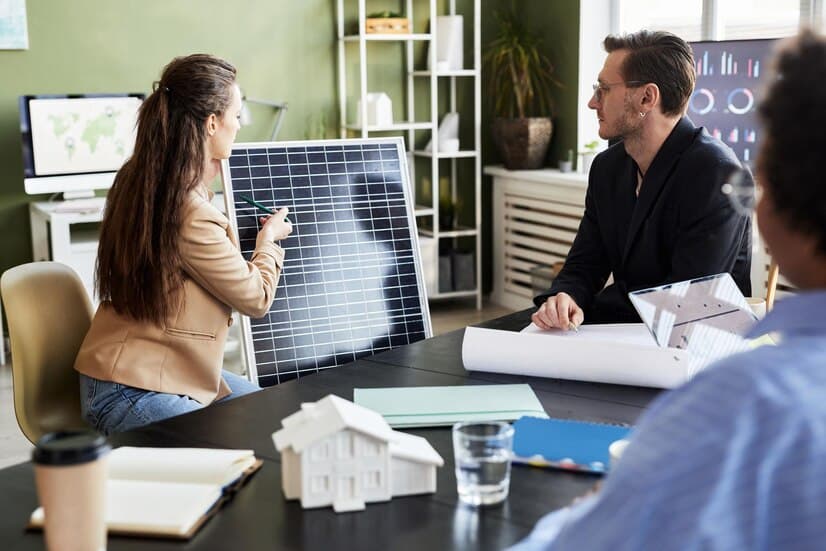How to Reduce Emissions Under Local Law 97 NYC

Local Law 97 NYC, which is part of New York City’s Green New Deal, mandates that buildings in the city must meet specific emissions standards. The law, aimed at combating climate change, requires building owners to reduce greenhouse gas emissions from their properties. As businesses and property owners in New York City adapt to these standards, it's essential for them to understand how to comply with Local Law 97 NYC while minimizing the environmental impact. This article will discuss actionable strategies to reduce emissions and ensure compliance with this crucial regulation.
Understanding Local Law 97 NYC
Local Law 97, a part of New York City's Climate Mobilization Act, requires buildings larger than 25,000 square feet to reduce their greenhouse gas emissions. The law has set ambitious targets for reducing emissions, aiming for an 80% reduction by 2050 from baseline levels established in 2005. The law applies to all commercial and residential buildings, including multifamily properties, and includes stringent penalties for non-compliance.
To effectively reduce emissions, business owners and property managers need to implement strategies that involve both operational and infrastructure changes. Below are some key strategies businesses can adopt to meet the requirements of Local Law 97 NYC.
Conduct an Energy Audit
The first step in reducing emissions under Local Law 97 NYC is conducting a comprehensive energy audit. An energy audit assesses how much energy a building consumes and identifies areas where energy use can be reduced. This audit typically includes a review of heating, cooling, lighting, and other energy-consuming systems within the building.
Energy audits are essential for understanding the current energy performance of a building and uncovering opportunities for improvement. By analyzing data on energy use, a business can pinpoint specific areas where energy efficiency upgrades will have the most significant impact on reducing emissions.
Upgrade to Energy-Efficient Systems
After completing an energy audit, business owners should focus on upgrading their existing systems to energy-efficient alternatives. For example, replacing outdated heating and cooling systems with high-efficiency models can significantly lower energy consumption and reduce emissions. Additionally, businesses can implement energy-efficient lighting systems, such as LED lighting, which use less power and have a longer lifespan.
Another area where businesses can improve energy efficiency is in their building insulation. By upgrading insulation and sealing drafts, it is possible to reduce the need for heating and cooling, leading to lower energy consumption and fewer emissions. These investments in energy-efficient systems will also provide long-term savings on utility bills, which can offset the initial investment.
Incorporate Renewable Energy Sources
One of the most effective ways to meet the emissions reduction goals set by Local Law 97 NYC is by incorporating renewable energy sources into a building's energy mix. Solar panels, wind energy, and geothermal systems are all viable options for reducing a building’s reliance on fossil fuels. By transitioning to renewable energy sources, businesses can reduce their carbon footprint and contribute to the city’s overall efforts to combat climate change.
For businesses that cannot install renewable energy systems on-site, purchasing renewable energy credits (RECs) can be an alternative. These credits support renewable energy projects and help offset the emissions generated by a building’s energy consumption.
Implement Smart Building Technologies
Smart building technologies can help businesses optimize energy use by automatically adjusting systems based on real-time data. For instance, smart thermostats can adjust heating and cooling systems based on occupancy, reducing energy use when the building is empty or during off-hours. Similarly, automated lighting systems can dim or turn off lights in areas that are not in use.
Smart building technologies also allow for greater monitoring and control of energy systems. By collecting data on energy use, businesses can identify inefficiencies and take corrective actions quickly. The ability to monitor energy consumption in real-time helps ensure that energy-efficient systems are functioning as intended, contributing to emission reductions and compliance with Local Law 97 NYC.
Encourage Behavioral Changes
In addition to upgrading systems and technologies, businesses can encourage behavioral changes among their employees and tenants. Educating occupants about energy conservation practices, such as turning off lights when not in use, using energy-efficient appliances, and optimizing heating and cooling settings, can significantly reduce energy consumption.
Moreover, creating incentives for employees and tenants to adopt sustainable practices can reinforce these behaviors. Offering rewards or recognition for energy-saving actions can motivate individuals to contribute to the building’s overall emission reduction efforts.
Invest in Green Certifications
While not a requirement of Local Law 97 NYC, obtaining a green building certification can help businesses demonstrate their commitment to sustainability. Certifications like LEED (Leadership in Energy and Environmental Design) or ENERGY STAR® are recognized benchmarks for energy-efficient and environmentally responsible buildings.
These certifications often involve comprehensive energy audits, the installation of energy-efficient systems, and the implementation of renewable energy solutions. By investing in green certifications, businesses can showcase their efforts to comply with Local Law 97 NYC while attracting environmentally conscious tenants and clients.
Engage with Professional Services
Given the complexity of Local Law 97 NYC and the many steps involved in reducing emissions, it may be beneficial for businesses to seek professional services to help with compliance. Energy consultants, engineers, and sustainability experts can provide valuable insights into how to implement effective emission reduction strategies.
These professionals can assist with energy audits, system upgrades, and the installation of renewable energy sources, ensuring that businesses are on track to meet the law’s requirements. Their expertise can also help businesses navigate the intricacies of Local Law 97 NYC and avoid costly penalties for non-compliance.
Monitoring and Reporting
To ensure ongoing compliance with Local Law 97 NYC, businesses must regularly monitor and report their emissions. Local Law 97 mandates that buildings submit annual greenhouse gas emissions reports, which must include detailed information about energy use and the building's efforts to reduce emissions.
Businesses should establish a system for tracking energy use and emissions on an ongoing basis. Regular monitoring will allow businesses to identify areas where further improvements can be made and ensure that they remain in compliance with the law’s emission reduction targets.
Conclusion
Reducing emissions under Local Law 97 NYC is an essential step for businesses to align with New York City’s ambitious climate goals. By conducting energy audits, upgrading systems, incorporating renewable energy, implementing smart building technologies, and encouraging behavioral changes, businesses can effectively reduce their emissions and meet the requirements of the law. For businesses looking for expert guidance on achieving these goals, National Energy Cost Services, Inc. provides valuable support. With their experience in energy efficiency and sustainability, National Energy Cost Services, Inc. can help businesses navigate Local Law 97 NYC and implement cost-effective strategies to reduce emissions and ensure compliance with city regulations.
Note: IndiBlogHub features both user-submitted and editorial content. We do not verify third-party contributions. Read our Disclaimer and Privacy Policyfor details.




